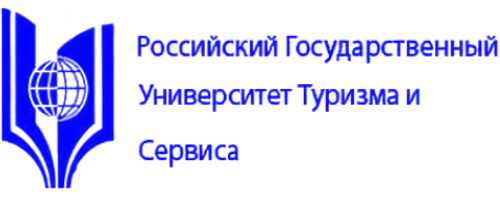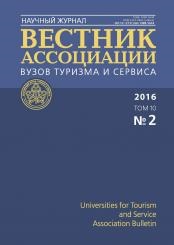Moscow, Russian Federation
The article is based on the results of the examination of ten national training models for tourism. The author has analyzed the experience of vocational education in Austria, Australia, great Britain, Germany, Canada, Norway, Russia, Finland, France and Switzerland; the results of the analysis of some national models have been published previously [2]. The aim of this work is the generalization of the leading trends of education in tourism; identification of the most typical parameters of educational systems in situation specialized in foreign education which allow more clearly to represent the ratio of global and national in the Russian model of personnel training for tourism, and justify organizational and pedagogical conditions of functioning of a more effective, innovative model of industrial education in the field of tourism. Sustainable system of relations and common characteristics to all studied models of training personnel for tourism identified in the comparative international study are understood as the trends of educational development in the field of tourism. The article made the following conclusions: 1) the invariant of organizational and pedagogical conditions of development of structure and content possess national characteristics, expressed in the identity management and pedagogical technologies, organization and forms of operation; 2) current situation is characterized by the combination in each of the national model of personnel training for tourism biased and specific features that leads to summarizing an assumption about the value of constructive adaptation of the individual who discovered the bias, the mechanisms of formation of effective models in the Russian model of specialized tourism education.
international comparative pedagogical analysis, vocational education in tourism, systematic organization of profile education in tourism
Актуальность исследований, направленных на выявление ведущих мировых тенденций в области туристского образования, обосновывается проблемами становления практикоориентированной, эффективной и интегрированной в мировом образовательном пространстве российской системы подготовки кадров для сферы туризма [1, 2, 4, 5]. Сопоставительный анализ моделей подготовки кадров для туризма Австралии, Австрии, Великобритании, Германии, Канады, Норвегии, Финляндии, Франции, Швейцарии и России, обобщающие результаты которого описываются в данной статье, был сконцентрирован на выявлении:
1. Il´kevich S.V., Sakharchuk E.S. Ekonomicheskie aspekty ustoychivogo razvitiya turizma v regionakh Rossiyskoy Federatsii//Vestnik Assotsiatsii vuzov turizma i servisa. 2014. T. 8. № 2. S. 4-17.
2. Sakharchuk E.S. Analiz zarubezhnykh modeley podgotovki kadrov dlya sfery turizma: Monografiya. M.: Knorus, 2015. 183 s.
3. Sakharchuk E.S. Metodika analiza zarubezhnykh modeley podgotovki kadrov dlya sfery turizma //Vestnik Assotsiatsii vuzov turizma i servisa. T. 8. 2014. № 3. S. 78-86.
4. Fedulin, A.A., Sakharchuk, E.S., Ilkevich, S.V. Moscow regional education cluster in tourism and services: A new sustainable development paradigm//World Applied Sciences Journal. 2014. T. 30. № 30. S. 80-81.
5. Sakharchuk E.S., Khanbabaeva Z.M., Daitov V.V. Analysis of practice centered aspects of educational programs in the sphere of tourism and hospitality//World Applied Sciences Journal. 2013. T. 27. № 13. S. 305-308.
6. URL: http://unesco.guap.ru/unesco/main/mipo. (data obrashcheniya: 01.09.2015).
7. URL: http: //www.unesco.org/education/uil. (data obrashcheniya: 01.09.2015).
8. URL: http: themis.unwto.org/content/unwtotedqual www.unevoc.unesco.org. (data obrashcheniya: 01.09.2015).
9. URL: http://www.cambridgeassessment.org.uk/ (data obrashcheniya: 01.09.2015).





